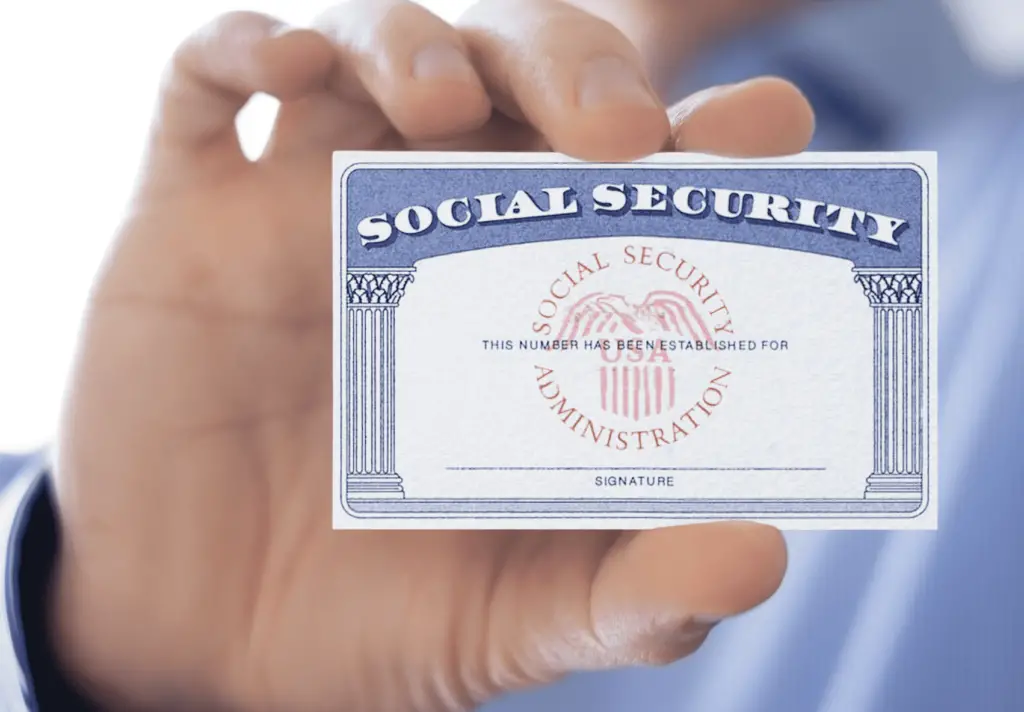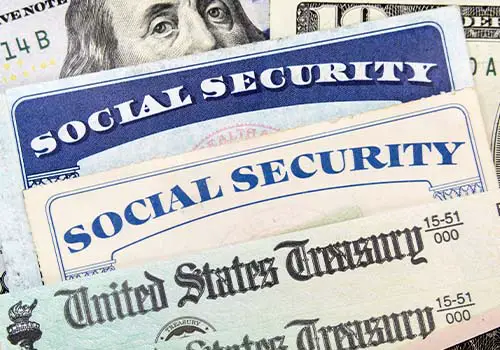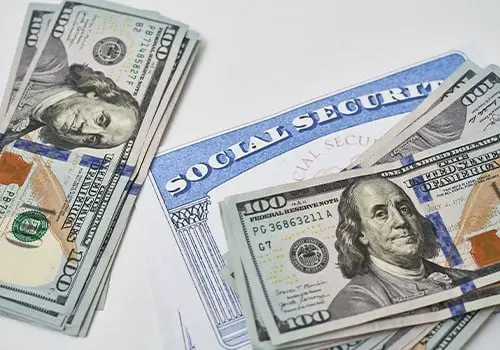Have you ever wondered why everyone keeps telling you to guard your social security number (SSN) with your life? Or why does that simple, nine-digit number seem to pop up everywhere? From job applications to credit card forms, everything requires it! Let’s take a closer look.
While the U.S. has the SSN, many countries have similar identity numbers. It’s like how different countries drive on different sides of the road, but everyone recognizes the importance of traffic rules!
A Brief History of the SSN
When it was first implemented, the SSN was just a way for the government to track your earnings and calculate your retirement benefits. Think of it as your personal financial fingerprint that is unique only to you. Its significance grew over time, though. And now? It’s your go-to identifier in many scenarios and life situations.
Identification & Verification
Whether opening a new bank account or getting a new phone contract, your SSN is the first thing they ask for. Why? Because it’s like a personal key that unlocks a treasure trove of information about you. It helps businesses verify who you are. Official institutions want to ensure you’re “you” and not someone else.
Your Financial Life’s Backbone
Think of your SSN as the foundation of a house. Without it, your financial life might just come crumbling down. It connects everything – from your bank accounts and credit history to loans.
KEY TAKEAWAYS
- A Social Security number is like your financial fingerprint and is unique to only you. It’s used to track earnings and calculate retirement benefits.
- In today’s digital age, a SSN tracks everything about you, like eligibility to work in the US, taxes, credit history, past employment, and more.
- Your Social Security number is your ticket to accessing Medicare and other healthcare benefits such as SSDI.
Role in Government Benefits
1. Retirement’s Trusty Shield:
– While personal savings and pensions are the warriors on the battlefield of retirement, Social Security is the sturdy shield. It promises a consistent, albeit modest, inflow of funds that helps retirees maintain a basic living standard.
2. Protector of the Disabled:
– Life’s uncertainties can strike without warning, leaving individuals with disabilities that hinder employment. Social Security is the guardian through the Social Security Disability Insurance (SSDI), offering financial support.
3. Beacon for Families and Survivors:
– The loss of a breadwinner can plunge families into a financial abyss. But Social Security’s Survivor Benefits ensures that the rhythm of life doesn’t come to a standstill. It cushions the widowed spouse and children and illuminates a path forward.
4. Lifeline for the Vulnerable:
– Among its many roles, Social Security also dons the cape of a savior for the most vulnerable segments. The Supplemental Security Income (SSI) targets those aged, blind, or disabled with insufficient resources and offers them the support they need.
5. Facilitator of a Larger Ecosystem:
– Social Security is pivotal in driving policy decisions beyond the direct benefits. It reflects the nation’s socioeconomic health and influences broader government assistance programs.
While Social Security stands tall as a pillar of support, it’s essential to perceive it in the correct light:
– Complementary, not Comprehensive: Designed as a safety net, Social Security is meant to complement other income sources like personal savings or pensions, not replace them.
– Dynamic & Adaptable: As society evolves, so does Social Security. The program’s adaptability ensures its relevance across generations.
How It Affects Employment
It’s a Gateway:
– Eligibility Verification: Before you even begin, employers use your SSN to ensure you’re authorized to work in the U.S. through the E-Verify system. (1) This system cross-references your SSN with federal databases to verify employment eligibility.
Financial Implications:
– Tax Reporting: Your SSN acts as your taxpayer identification number. Employers use it to report income to the Internal Revenue Service (IRS) and to report your Social Security wages to the Social Security Administration.
– Credit Checks: Employers might run a credit check for positions involving financial responsibility. While they’ll typically need your consent, your SSN facilitates this check.
Benefits and Perks:
– Health Insurance: When enrolling in an employer-sponsored health plan, your SSN helps process your application and claims.
– Retirement Plans: If your employer offers retirement benefits, such as a 401(k), your SSN will be crucial for account setup and management.
Background Checks:
– Identity Verification: When conducting background checks, employers use your SSN to ensure they access records for the correct individual.
– Past Employment Verification: Some comprehensive checks might examine past employment history, and your SSN aids in fetching accurate information.
Post-Employment Scenarios:
– Unemployment Benefits: If you ever find yourself out of a job and eligible for unemployment benefits, your SSN will be used to process your claim.
– Worker’s Compensation: Your SSN helps expedite workers’ compensation claims for workplace injuries.
Your SSN is a master key that unlocks various facets of your employment journey. It’s a bridge between your professional endeavors and government systems.
Must read articles related to Social Security Numbers
- Find your Social Security Number Prefix by state.
- Can your Social Security number be suspended?
- Fourteen ways to protect your Social Security number.
- What is a Social Security Award Letter…how do you get a copy?
- How do you verify if someone is using your Social Security number?
Impact on Healthcare
Your SSN is pivotal during doctor’s visits and when receiving prescription benefits. It’s the golden ticket to accessing healthcare services and benefits. Let’s take a closer look at Social Security’s role in healthcare:
Medicare’s Guiding Hand:
The Medicare program is one of the most direct connections between Social Security and healthcare. Upon reaching a certain age or under specific disability conditions, Social Security beneficiaries become eligible for Medicare, the government-sponsored health insurance program.
Funding the Healthcare Beat:
A portion of the Social Security tax directly funds Medicare Part A (hospital insurance). This symbiotic relationship ensures a steady flow of funds, sustaining the health safety net for millions.
Disability and Medical Evaluation:
When individuals apply for Social Security Disability Insurance (SSDI), a meticulous medical evaluation determines their eligibility. This intertwining underscores the system’s commitment to recognizing and supporting genuine health concerns.
Retiree Health Continuum:
Losing employer-sponsored health insurance could be jarring for retirees transitioning from employment. Thanks to Social Security’s framework, many seamlessly transition to Medicare, ensuring that age doesn’t equate to healthcare inaccessibility.
Prescription Drug Coverage:
Social Security extends its reach to prescription drug coverage with Medicare Part D. Beneficiaries can access essential medicines without the daunting specter of unaffordable costs.
A Catalyst for Preventive Care:
Social Security’s affiliation with Medicare accentuates the importance of preventive care. Many preventive services, from screenings to vaccines, become accessible, often with no additional costs. An ounce of prevention, indeed, becomes worth a pound of cure.
Peace of Mind and Holistic Health:
Beyond the tangible, financial and health support assurance from Social Security can alleviate mental stress. This peace of mind, often overlooked, plays a pivotal role in holistic well-being.
SSN & Your Credit Report
Have you ever dreamed of buying a house or car? Your SSN is the bridge to your credit report, determining if that dream becomes a reality. Lenders can’t gauge if you’re trustworthy with money without it.
The Identifier:
At its core, your SSN serves as a unique identifier. Every time you apply for credit, lenders use your SSN to pull your credit report. It ensures that the John Doe from Texas isn’t mistaken for the John Doe from New York.
Building and Fortifying the Castle:
Your SSN is used throughout your life to build your credit history. From your first credit card to your home loan, your SSN tracks these financial milestones and helps shape your credit report’s architecture.
Guarding the Gates:
Your SSN acts as a gatekeeper, determining who can access your credit report. Only with proper authorization, often linked to your SSN, can entities like lenders or landlords view your credit details.
The Dual-Edged Sword:
While the SSN is a powerful tool for building and accessing credit reports, it’s also a target for identity thieves. If stolen, rogue knights can wreak havoc, opening unauthorized accounts and damaging your credit score.
Monitoring the Realm:
Reviewing your credit report can help you spot any inaccuracies or unauthorized activities. Any discrepancies tied to your SSN should be addressed posthaste, ensuring your credit castle remains untarnished.
Mending the Walls:
If your SSN is compromised, it can have cascading effects on your credit report. You might need to place fraud alerts or credit freezes to protect your financial fortress. This action signals to lenders extra caution, ensuring that any credit request undergoes stringent verification.
The Quest for Knowledge:
When used with specific platforms, your SSN allows you access to educational credit scores or credit monitoring services. These tools empower you with knowledge, enabling proactive management of your credit kingdom.
TIP
Lenders use your Social Security number to pull your credit history and use that history to determine if you are worthy to lend money. You can receive a free copy of your credit report annually, which can help you monitor and improve your credit rating.
Tips to Keep Your SSN Safe
Quick Tips
- Never carry your card: Store it somewhere safe!
- Don’t give it out freely: Ask why it’s needed and how it will be safeguarded.
- Check your credit report: Regularly monitor for suspicious activities.
Diving Deeper into SSN Safety
1. Physical Safeguards:
- Limit Exposure: Don’t carry your Social Security card in your wallet. Instead, store it in a secure location at home.
- Shred, Don’t Toss: Dispose of documents containing your SSN using a shredder. Leaving them in the trash makes you an easy target for dumpster divers.
2. Digital Defenses:
- Strong Passwords: Use complex passwords for online accounts, especially those with financial or personal information.
- Two-Step Verification: Wherever possible, enable two-factor authentication for added security.
- Secure Networks: Avoid transmitting your SSN over unsecured Wi-Fi networks. Look for that little padlock symbol or “https” in your browser’s address bar.
3. Be Skeptically Inquisitive:
- Question Requests: Whenever someone asks for your SSN, inquire why they need it, how they’ll protect it, and what happens if you don’t share.
- Limit Sharing: Only give out your SSN when necessary. Not every organization that asks for it genuinely needs it.
4. Monitor Your Footprint:
- Credit Reports: Regularly review your credit reports for any unusual activities. You’re entitled to a free annual report from each of the three major bureaus.
- Keep an Eye on Statements: Regularly check bank and credit card statements for unauthorized transactions. Early detection can limit the damage.
5. Respond Swiftly to Suspicion:
- Alert and Freeze: If you suspect identity theft or your SSN gets exposed in a data breach, consider placing a fraud alert or credit freeze on your credit reports.
- Report to Authorities: If you notice any suspicious activities, notify the appropriate agencies, including the police, the Federal Trade Commission, and the Social Security Administration.
6. Stay Informed:
- Scam Awareness: Be wary of phone calls or emails requesting your SSN. Scammers have become adept at posing as legitimate entities. When in doubt, hang up or delete the email, then contact the institution directly through verified channels.
- Updates & Patches: Regularly update your devices and software. These updates often contain security enhancements.
Guarding your social security number isn’t just a best practice—it’s essential. Treat these digits with the reverence they deserve, and let them remain a key that only you possess.
The Bottom Line
Alright, it’s wrap-up time. You have armed yourself with knowledge today. Now that you understand a Social Security number’s true importance, you can double down on your efforts to keep it safe.
Your social security number is no ordinary number. It’s a cornerstone of your identity and daily life. Guard it, cherish it, and use it wisely.
For information on how social security relates to marriage, see “Does social security verify marriages?“.
(1) Accurate Background, What Does Your Social Security Number Say About You? https://www.accurate.com/blog/what-does-your-social-security-number-say-about-you/
Frequently Asked Questions
Your social security card is the most common document containing your social security number. If you cannot find your Social Security card, you can check other documents.
First, your tax returns will show your Social Security number. Other documents that might show your SSN are bank statements, credit card statements, Social Security statements, and pay stubs. If you cannot locate your Social Security number, you must visit your local Social Security office.
You can put a fraud alert on your Social Security number by contacting one of the three credit reporting agencies. The fraud alert can typically be done entirely online. Once you have placed an alert with one agency, they must notify the other two agencies. There is no need to contact all three agencies.
A fraud alert remains on your file for one year, although you can choose to renew the alert at the end of the year. If fraud has been confirmed on your Social Security number, the agencies themselves might decide to extend the fraud alert automatically.
Yes, someone can use your SSN without you knowing. One thing that makes ID theft so dangerous is that you might not even know it has happened for months or years.
You might attempt to get a car loan or mortgage and discover that a thief has ruined your credit file. Credit monitoring services help alert you that someone is trying to use your Social Security number. Keeping a regular check on your credit report is also extremely important because it allows you to identify suspicious activity in a timely fashion.
There are a couple of things you should do to protect yourself after your SSN is stolen. First, you should place a fraud alert on your Social Security number.
Next, check your credit report and sign up for a credit monitoring service. This service will notify you immediately if anyone attempts to use your SSN to obtain credit.
Finally, an identity protection service can even help you remove fraudulent items from your credit report and provide insurance protection from financial losses caused by fraud.
You can find a Social Security Administration office near you by using our SSA office locator and searching for your closest location.





